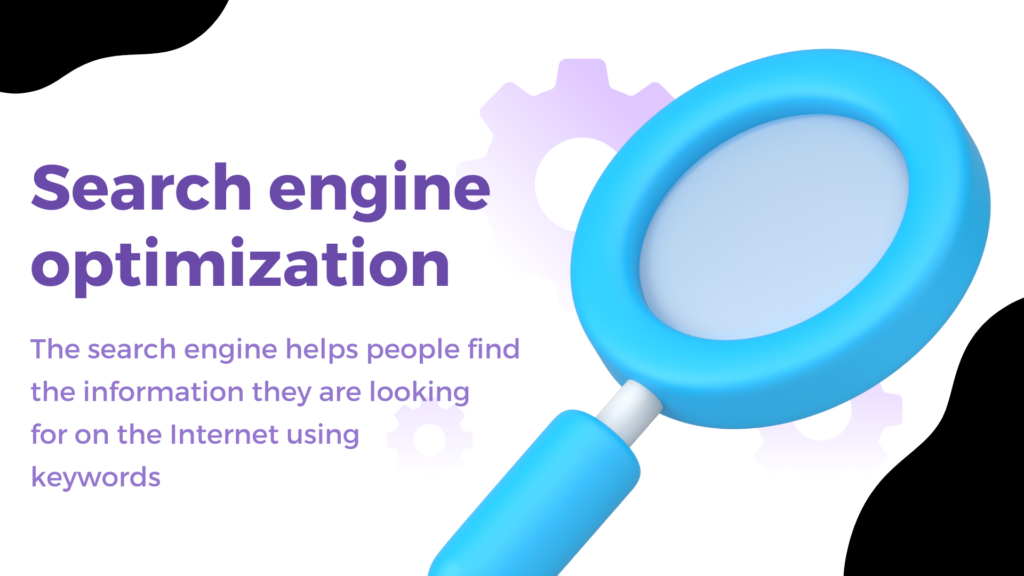Search Engine Optimization (SEO) marketing is a powerful tool that can significantly enhance your online visibility, drive traffic to your website, and ultimately boost your business’s bottom line. Whether you’re new to SEO or looking to refine your strategies, this guide will provide you with the essential knowledge and tips to master SEO marketing.
What is SEO Marketing?
SEO marketing is the practice of optimizing your website and its content to improve its ranking on search engine results pages (SERPs). Higher rankings increase your site’s visibility to potential customers who are actively searching for products or services like yours. SEO encompasses various strategies, including keyword research, on-page optimization, technical SEO, and link building.
Why is SEO Important?
SEO is crucial for several reasons:
- Increased Visibility: Higher search engine rankings lead to more visibility and traffic.
- Credibility and Trust: Users trust search engines, and appearing on the first page of results signals reliability.
- Cost-Effectiveness: SEO is a cost-effective marketing strategy with long-term benefits.
- User Experience: Good SEO practices improve the overall user experience on your site.

Key Components of SEO Marketing
1. Keyword Research
Keyword research is the foundation of SEO. It involves identifying the search terms your target audience uses when looking for products or services similar to yours.
Tips for Effective Keyword Research:
- Use Tools: Utilize tools like Google Keyword Planner, Ahrefs, and SEMrush to find relevant keywords.
- Focus on Long-Tail Keywords: These are longer, more specific phrases that often have lower competition and higher conversion rates.
- Analyze Competitors: Look at which keywords your competitors are ranking for and consider targeting those as well.
2. On-Page SEO
On-page SEO refers to the optimization of individual pages on your website. This includes content, HTML code, and meta tags.
Tips for On-Page SEO:
- Optimize Title Tags and Meta Descriptions: Ensure they are descriptive, include target keywords, and are compelling to encourage clicks.
- Use Header Tags: Structure your content with H1, H2, and H3 tags to make it easy to read and understand.
- Internal Linking: Link to other relevant pages on your site to help search engines understand the structure and hierarchy of your site.
- Content Quality: Create high-quality, valuable content that meets the needs of your audience and includes targeted keywords naturally.
3. Technical SEO
Technical SEO involves optimizing the backend of your website to ensure that search engines can crawl and index your site effectively.
Tips for Technical SEO:
- Improve Site Speed: Use tools like Google PageSpeed Insights to analyze and enhance your site’s loading speed.
- Mobile Optimization: Ensure your site is mobile-friendly, as a significant portion of users access the web via mobile devices.
- Secure Your Site: Use HTTPS to secure your site, which is a ranking factor for search engines.
- Fix Broken Links: Regularly check for and fix broken links to improve user experience and search engine crawling.
4. Link Building
Link building is the process of acquiring high-quality backlinks from other websites to your own. Backlinks are a strong indicator of your site’s authority and relevance.
Tips for Link Building:
- Create Shareable Content: Produce valuable, shareable content that others want to link to.
- Guest Blogging: Write guest posts for reputable sites in your industry with links back to your site.
- Build Relationships: Network with industry influencers and bloggers to build relationships that can lead to backlinks.
- Monitor Backlinks: Use tools like Ahrefs or Moz to monitor your backlinks and ensure they are high quality.
Measuring SEO Success
To gauge the effectiveness of your SEO efforts, it’s essential to track key performance indicators (KPIs):
- Organic Traffic: The number of visitors coming to your site from search engines.
- Keyword Rankings: Track the rankings of your target keywords over time.
- Conversion Rate: The percentage of visitors who take the desired action, such as making a purchase or filling out a form.
- Bounce Rate: The percentage of visitors who leave your site after viewing only one page.
Tools like Google Analytics, Google Search Console, and SEO-specific platforms can help you track and analyze these metrics.
Staying Updated with SEO Trends
SEO is an ever-evolving field, with search engines frequently updating their algorithms. Stay informed by:
- Following Industry Blogs: Sites like Moz, Search Engine Land, and Ahrefs regularly publish updates and insights.
- Attending Webinars and Conferences: Participate in SEO webinars and conferences to learn from experts.
- Continuous Learning: Enroll in online courses and certifications to keep your skills up-to-date.
Conclusion
Mastering SEO marketing is a continuous process that requires time, effort, and a strategic approach. By understanding and implementing the key components of SEO—keyword research, on-page optimization, technical SEO, and link building—you can improve your website’s visibility, attract more organic traffic, and achieve your business goals. Stay committed, stay informed, and watch your online presence grow. Happy optimizing!

Leave a Comment